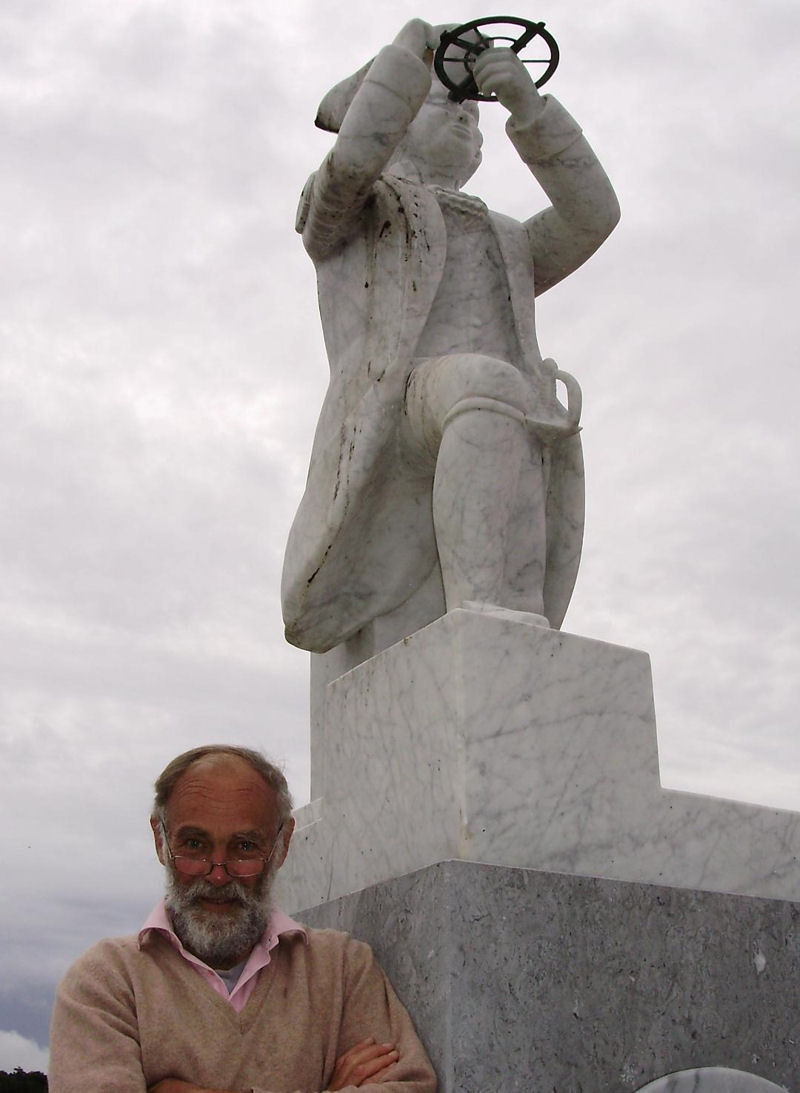2019-14 Imagine, an old Brexit solution.
 Tuesday, April 23, 2019
Tuesday, April 23, 2019 PRESS RELEASE -- EMBARGOED UNTIL 0001 on 4th May, 2019, his birthday.
JEAN-CHARLES DE BORDA, “Capitaine et Savant,” 4.5.1733 – 19.2.1799, versus the world’s first ‘DEMOCRATIC DICTATOR’
Imagine, if the 2011 referendum on the UK’s electoral system had been a multi-option ‘preferendum’ on five options – as was the 1992 New Zealand vote on their electoral system: FPTP, PR-STV and three in the middle – the UK like NZ would probably now have PR; (NZ has ½ FPTP and ½ PR-list).
So imagine, the 2015 elections would have been fairer, with fewer Tories and fewer DUP (and SF), but more Greens, Lib-Dems and UKIP. So no Tory majority. So a coalition government, probably not with UKIP (the Tories’ main rival) but with the Lib-Dems again.
So imagine, no Brexit referendum, at all! Or, if there had been such a ballot…
… imagine a multi-option referendum on, say, three options – “The UK in the EU, the EEA or the WTO?” – like the three-option poll Westminster ‘gave’ to Newfoundland in 1948. On possibly 48% again, ‘remain’ could have won! At the very least, a debate on the various options – customs union etc. – could have taken place before the vote!
So imagine, if our 2011 and 2016 referendums had catered for pluralism, like the world’s first multi-option referendum in 1894 in NZ, Finland’s in 1931, Uruguay’s of 1958, Australia’s 1977…
_________________
Not unlike Ramón Llull (‘Spain’) in 1199 and Nicholas Cusanus (‘Germany’) in 1435, in 1770 Jean-Charles de Borda (France) invented the Modified Borda Count, MBC. It was presented to l’Académie des Sciences in 1784, just five years before the French Revolution, and adopted in 1796.
Napoléon Bonaparte, however, didn’t like this ‘consensus stuff’ and in 1804, l’Académie (by now re-named l’Institut Français), reverted to majority voting. France then had a third binary referendum and thus Napoléon became Emperor, the world’s first ‘democratic dictator’. Mussolini, Hitler, Duvalier, Gaddafi… and the rest is history, which continues to repeat itself.
_________________
MPs with their ‘indicative (sic) and other (sick) votes’ in parliament, and the Electoral Commission with its binary referendums, along with rulers like Egypt’s President Abdel Fattah el-Sisi, also believe in majority voting. It suits them: they choose the question; and – well, usually – the question is the answer. Alas, both Westminster and the otherwise meticulously independent EC have consistently refused to consider the practicality and accuracy of multi-option, preferential voting.
BUT NOW, JUST IMAGINE, a Brexit solution: not a second binary, but a preferential referendum with say five options, i.e., something for (almost) everybody. Joyeux Anniversaire, Jean-Charles!
 Deborda | Comments Off |
Deborda | Comments Off | 

